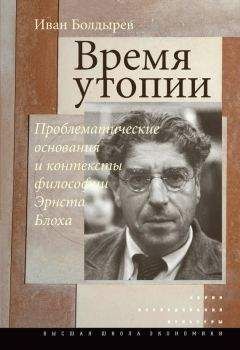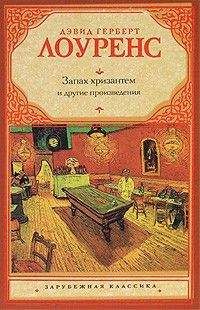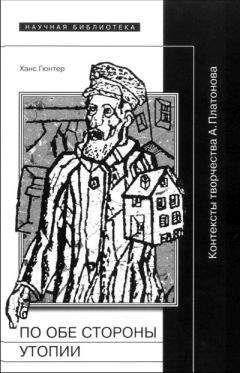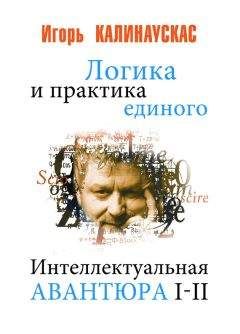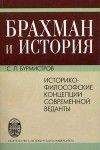Дэвид Лоуренс - Английский с Дэвидом Г. Лоуренсом. Тень в розовом саду / D. H. Lawrence. The Shadow in the Rose Garden
“He could have helped it if he’d wanted to (мог бы, если бы захотел).”
“Well (что ж),” I said. “We aren’t all heroes (не все мы герои).”
“Oh, but that’s different! – The big, good Alfred! (о, но это другое! большой, славный Альфред) – did you ever hear such Tommy-rot in your life (вы когда-нибудь слышали подобную чепуху в своей жизни; Tommy-rot – /разг./ дикая чушь, ерунда, вздор)? – Go on – what does she say at the end (продолжайте… что она говорит в конце)?”
“Oh, but isn’t it a shame to take a poor girl in like that!” cried Mrs. Goyte. “Never to let on that he was married, and raise her hopes – I call it beastly, I do.”
“You don’t know,” I said. “You know how anxious women are to fall in love, wife or no wife. How could he help it, if she was determined to fall in love with him?”
“He could have helped it if he’d wanted to.”
“Well,” I said. “We aren’t all heroes.”
“Oh, but that’s different! – The big, good Alfred! – did you ever hear such Tommy-rot in your life? – Go on – what does she say at the end?”
“Er – ‘We shall be pleased to hear of your life in England (э-э… мы будем рады услышать о твоей жизни в Англии). We all send many kind regards to your good parents (мы все шлем добрые пожелания твоим милым родителям; regard – внимание, забота; regards – привет, поклон; пожелания). I wish you all happiness for your future days (я желаю вам всем счастья в будущем: «на будущие дни»). Your very affectionate and ever-grateful Elise (твоя очень преданная и вечно признательная Элиз).’”
There was silence for a moment, during which Mrs. Goyte remained with her head dropped, sinister and abstracted (на минуту наступило молчание, во время которого миссис Гойт стояла с опущенной головой, мрачная и отрешенная; to remain – оставаться; пребывать; оставаться в каком-л. состоянии; sinister – дурной; зловещий; мрачный; abstracted – погруженный в мысли; рассеянный; to abstract – отделять, извлекать; абстрагировать/ся/). Suddenly she lifted her face, and her eyes flashed (вдруг она подняла лицо, и глаза ее вспыхнули).
“Oh, but I call it beastly, I call it mean, to take a girl in like that (о, но я называю это свинством = это свинство, это низко – так надуть девчонку; mean – посредственный; убогий, жалкий; подлый, низкий).”
“Nay (нет; nay – /диал./ нет),” I said. “Probably he hasn’t taken her in at all (возможно, он ее вообще не обманывал). Do you think those French girls are such poor innocent things (вы думаете, те француженки такие уж бедные невинные существа)? I guess she’s a great deal more downy than he (думаю, она гораздо хитрее его; to guess – гадать; догадываться; предполагать; /разг./ полагать, считать; a great deal – сильно, очень много, изрядно; значительно; deal – некоторое количество; downy – пушистый; /разг./ хитрый, ушлый, продувной).”
“Er – ’We shall be pleased to hear of your life in England. We all send many kind regards to your good parents. I wish you all happiness for your future days. Your very affectionate and ever-grateful Elise.’”
There was silence for a moment, during which Mrs. Goyte remained with her head dropped, sinister and abstracted. Suddenly she lifted her face, and her eyes flashed.
“Oh, but I call it beastly, I call it mean, to take a girl in like that.”
“Nay,” I said. “Probably he hasn’t taken her in at all. Do you think those French girls are such poor innocent things? I guess she’s a great deal more downy than he.”
“Oh, he’s one of the biggest fools that ever walked,” she cried (о, это один из самых больших дураков, что когда-либо ходили /по земле/, – воскликнула она).
“There you are (вот видите; there you are! – вот вы где!; вот то, что вам нужно; что я вам говорил)!” said I.
“But it’s his child right enough (но это точно его ребенок),” she said.
“I don’t think so (я так не думаю),” said I.
“I’m sure of it (я в этом уверена).”
“Oh well,” I said – “if you prefer to think that way (ну хорошо, если вы предпочитаете так думать).”
“What other reason has she for writing like that (какие еще у нее причины, чтобы писать так…) —?”
I went out into the road and looked at the cattle (я вышел на дорогу и посмотрел на скот).
“Oh, he’s one of the biggest fools that ever walked,” she cried.
“There you are!” said I.
“But it’s his child right enough,” she said.
“I don’t think so,” said I.
“I’m sure of it.”
“Oh well,” I said – “if you prefer to think that way.”
“What other reason has she for writing like that —?”
I went out into the road and looked at the cattle.
“Who is this driving the cows (кто это гонит коров)?” I said. She too came out (она тоже вышла).
“It’s the boy from the next farm (это мальчик с соседней фермы),” she said.
“Oh well,” said I, “those Belgian girls (ох уж эти бельгийские девушки)! You never know where their letters will end (никогда не знаешь, где = на чём закончатся их письма). – And after all, it’s his affair – you needn’t bother (и в конце концов, это его дело – вам не нужно беспокоиться; to bother – надоедать; беспокоить; беспокоиться, волноваться).”
“Oh —!” she cried, with rough scorn (ах! – воскликнула она с грубым презрением) – “it’s not me that bothers (это не я беспокоюсь). But it’s the nasty meanness of it (но эта мерзкая низость). Me writing him such loving letters (я писала ему такие нежные письма…)” – she put her hands before her face and laughed malevolently (она приложила руки к лицу и злобно засмеялась) – “and sending him nice little cakes and bits I thought he’d fancy all the time (и отправляла ему чудесные маленькие пирожные и всё такое прочее, о которых, как я думала, он мечтает всё время; cake – торт; кекс; пирожное; bit – кусок, кусочек; часть; to fancy – воображать, представлять себе; нравиться, любить). You bet he fed that gurrl on my things – I know he did (будьте уверены, он кормил ту девушку моими гостинцами – я знаю, кормил; to feed; gurrl = girl). It’s just like him (это очень на него похоже). – I’ll bet they laughed together over my letters (уверена, они вместе смеялись над моими письмами). I’ll bet anything they did (спорю на что угодно, смеялись…) —”
“Who is this driving the cows?” I said. She too came out.
“It’s the boy from the next farm,” she said.
“Oh well,” said I, “those Belgian girls! You never know where their letters will end. – And after all, it’s his affair – you needn’t bother.”
“Oh —!” she cried, with rough scorn – “it’s not me that bothers. But it’s the nasty meanness of it. Me writing him such loving letters” – she put her hands before her face and laughed malevolently – “and sending him nice little cakes and bits I thought he’d fancy all the time. You bet he fed that gurrl on my things – I know he did. It’s just like him. – I’ll bet they laughed together over my letters. I’ll bet anything they did —”
“Nay (нет),” said I. “He’d burn your letters for fear they’d give him away (он бы сжег ваши письма из страха, что они его выдадут).”
There was a black look on her yellow face (на ее желтом лице возникло хмурое выражение). Suddenly a voice was heard calling (внезапно послышался голос, который звал). She poked her head out of the shed, and answered coolly (она высунула голову из сарая и спокойно ответила):
“All right (хорошо)!” Then, turning to me (затем, повернувшись ко мне): “That’s his mother looking after me (это его мать за мной присматривает).”
She laughed into my face, witch-like, and we turned down the road (она рассмеялась мне в лицо ведьмовским смехом, и мы свернули на дорогу).
When I awoke, the morning after this episode (когда я проснулся на следующее после этого происшествия утро; to awake), I found the house darkened with deep, soft snow (то обнаружил, что дом затемнен глубоким мягким снегом), which had blown against the large west windows, covering them with a screen (который ветер намел на большие западные окна, покрыв их пеленой; to blow – дуть /о ветре/; гнать /ветром/; screen – ширма, щит, экран; завеса).
“Nay,” said I. “He’d burn your letters for fear they’d give him away.”
There was a black look on her yellow face. Suddenly a voice was heard calling. She poked her head out of the shed, and answered coolly:
“All right!” Then, turning to me: “That’s his mother looking after me.”
She laughed into my face, witch-like, and we turned down the road.
When I awoke, the morning after this episode, I found the house darkened with deep, soft snow, which had blown against the large west windows, covering them with a screen.
I went outside, and saw the valley all white and ghastly below me (я вышел на улицу и увидел, что долина подо мной совсем белая, мертвенно-бледная; ghastly – страшный; мертвенно-бледный), the trees beneath black and thin looking like wire (деревья внизу черные и тонкие, похожие на проволочные; wire – проволока), the rock-faces dark between the glistening shroud (склоны скал темные среди сверкающего савана; face – лицо; поверхность; склон /холма/), and the sky above sombre, heavy, yellowish-dark (а небо вверху мрачное, тяжелое, желтовато-темное), much too heavy for the world below of hollow bluey whiteness figured with black (слишком тяжелое для мира внизу, /представлявшего собой/ впалую голубоватую белизну, оттененную черным; hollow – пустой, полый; впалый, ввалившийся; to figure – изображать /графически и т. д./; набрасывать /контуры, силуэт/; украшать /рисунками, узором и т. д./). I felt I was in a valley of the dead (у меня было впечатление, что я в долине мертвых). And I sensed I was a prisoner (и я ощущал себя пленником), for the snow was everywhere deep, and drifted in places (поскольку снег был повсюду глубок и местами высился сугробами; to drift – относить, гнать /ветром, течением/; перемещаться, сдвигаться /по ветру, течению/; насыпать /сугробы/; вырастать /о сугробах, наносах и т. д./). So all the morning I remained indoors, looking up the drive at the shrubs so heavily plumed with snow (поэтому все утро я оставался дома, глядя вверх на придорожные кусты, так тяжело украшенные снегом = в пышном снежном уборе; drive – езда; дорога, подъездная аллея /к дому/; to plume – чистить клювом перья; украшать перьями или плюмажем; plume – перо /особ. длинное или яркое/; хохолок; султан, плюмаж), at the gateposts raised high with a foot or more of extra whiteness (на воротные столбы, высоко поднявшиеся с футом или более дополнительной белизны = выросшие в белоснежных шапках на фут или более; foot – ступня; фут /мера длины = 30,48 см/). Or I looked down into the white-and-black valley (или смотрел вниз, в черно-белую долину), that was utterly motionless and beyond life, a hollow sarcophagus (которая была совершенно неподвижной и безжизненной: «по ту сторону жизни», пустым саркофагом; hollow – полый, пустой).
